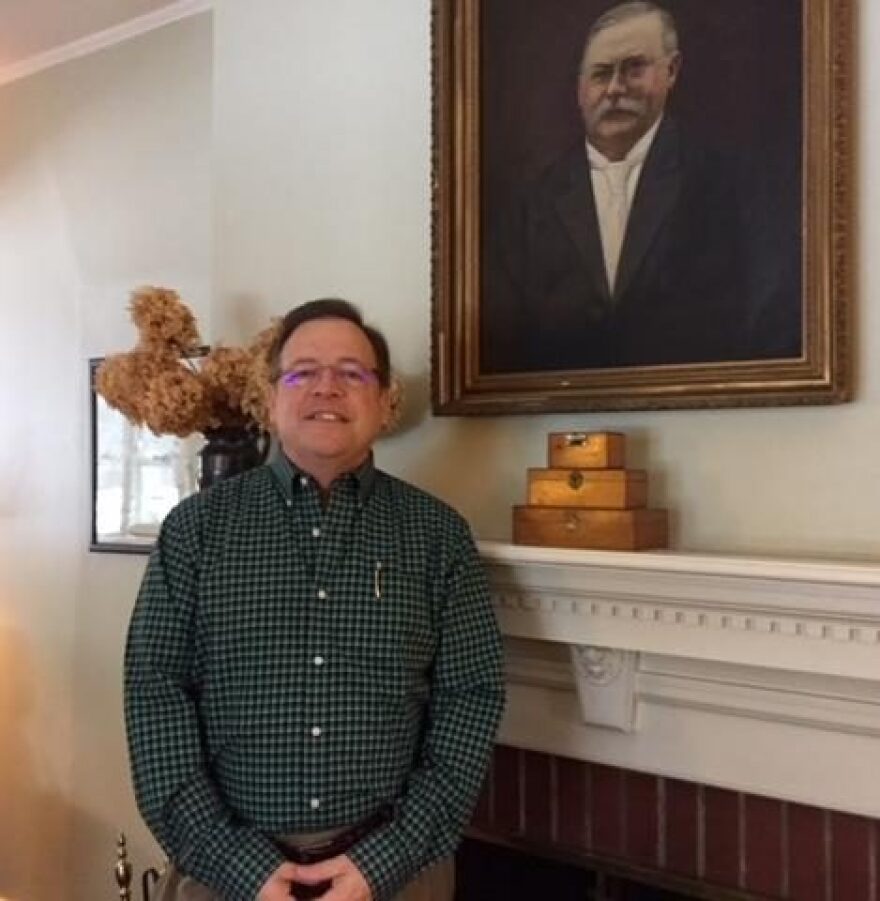ALBANY, NY (WSKG) - Victims of childhood sexual abuse are hoping that the #MeToo movement will help them enact the Child Victims Act in New York. The measure extends the statute of criminal and civil limitations for victims beyond the current age of 23 to age 50 and adds a one-year look back window to file civil suits.
One man who says he is a former victim, and is now an advocate, said this is the year for the act’s passage.
Richard Tollner, a 57-year-old real estate agent and town assessor in the Capital Region, has lived with his wife for the past quarter-century in a cozy country bungalow filled with family antiques.
We talk on his glassed-in porch, the snowy late-winter landscape unfolding in front of us. It’s been decades since the darker times of his adolescence, when, starting in 1975 when he was 15, he said a priest at a Catholic high school on Long Island molested him.
“School was closed, and we went in to make posters for a right-to-life march,” Tollner said. He said the priest took him to an isolated hallway, saying there was a large counter there and it would be easier to spread out the posters.
“He started molesting me and feeling me, and things of that nature,” Tollner said. “I did not know what was going on, so I didn’t say anything.”
Tollner said the incidents continued for nearly two more years in the priest’s private office, where he would summon Tollner, saying he wanted to talk about school-related matters. But the meetings, he said, actually had another purpose — to continue the sexual abuse.
When Tollner was 17, his father died suddenly. It was then that he decided he needed to stand up for himself. When the priest came to the funeral home, Tollner confronted him and told him to stay away from him. After that, he said, he started telling people about his experience.
He said some people asked him whether he was embarrassed to be speaking about such things.
“I’m not the bad guy,” he’d respond.
While he was still a student at St Pius the X Preparatory Seminary in Uniondale, Nassau County, he reported the incidents to school officials: a teacher, an administrator and a visiting priest. But he never received any response. He talked to other students who said they also had been molested, but they did not want to come forward.
Finally in 2002, when he was 42, Tollner was contacted by a reporter at Newsday, who had heard about the allegations. He told the paper his story and then went to the police. That’s where he learned that he could not press charges. The statute of limitations had run out 19 years before that date, when he was 23 years old.
The priest was one of the subjects of a grand jury probe, though no charges were ever filed, and a church tribunal in 2009 found no wrongdoing. He is now retired and does not have an active ministry.
Despite his experiences, Tollner still attends religious services and is on the church board — although he’s now an Episcopalian.
And while he changed denominations, he said he thinks the Catholic Church is still “worthwhile.”
“My problem is with the employees, not the company,” he said.
Tollner has been advocating for the rights of abuse victims and for the Child Victims Act in New York for a dozen years.
This year, Gov. Andrew Cuomo put the measure in his state budget proposal, hoping to use the extra leverage the governor has during budget negotiations to enact the measure into law.
Tollner said if the Child Victims Act becomes law, he will take advantage of the one-year window of opportunity to file a civil suit. If he were to win, he plans to give the money awarded for damages to charity.
And he hopes the cultural reckoning of the last several months over the sexual harassment of women will lead, finally, to greater rights for victims of childhood sexual abuse. He urges holdout state senators to act now.
“The time has come,” he said. “If you’re not allowing the vote now, and you are against it, you are trying to protect hidden predators.”


